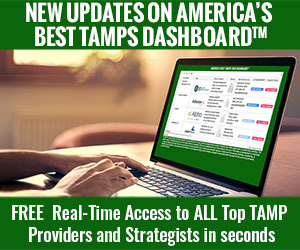
SEI has announced the findings of its inaugural OCIO Search Consultant Survey, providing direct insight into the emerging trends in the OCIO search process, including the use of discretionary and nondiscretionary investment models and the future of due diligence processes.

SEI’s research found that search consultants saw a slight year-over-year increase in activity in 2020. Across 2020 searches, 59% were reported to be for discretionary providers, while 22% were for nondiscretionary providers. The discretionary approach, also known as the outsourced CIO (OCIO) model, provides the outsourced partner with broader oversight of a firm’s investment strategy and day-to-day investment and fiduciary decision-making, while shifting the investment committee’s role to focus more on investment policy-setting and asset allocation strategy.
The survey also found that the nonprofit sector was the most likely to be looking for discretionary models, while the vast majority of search consultant requests (87%) came from university or college endowments.
“The most common challenge for institutional investors and search consultants is facilitating dialogue between the institutional investor and the OCIO candidates,” said Michael Cagnina, Managing Director of SEI’s Institutional Group in North America.
“We’re finding the searches that provide the OCIO candidates with direct access to the institutional investors, especially their investment board, committee, or staff, result in impactful conversations and allow for more informed decisions. As search consultants play a significant role in more and more searches, transparency and direct access will continue to be crucial for driving effective decision making.”
The survey also highlighted several critical components for due diligence searches in various segments. Key takeaways include:
- Of the consultants interviewed, 60% said college or university endowment clients are more likely to bring their own lists of OCIOs to include in requests for proposals rather than rely on their own expertise. Almost half (40%) said community foundations were the next most likely to do so.
- Search consultants are not being used in a large capacity in defined contribution. Less than one-third (30%) have conducted searches for defined contribution over the past two years, and half doubt that they’ll participate in any OCIO searches over the next three years.
- Nonprofits, including healthcare, are expected to be the top search segment with 70% of the search consultants saying they conducted searches for organizations for this sector. Corporate defined-benefit plan sponsors are second at 50%.
- Search consultants cited proposed recommendations and observations around components such as Investment Policy Statements (IPS) or portfolio allocations, as a critical factor when evaluating providers, with consultants unanimously considering it a top-three priority.
- In contrast, 70% of the respondents ranked “type of provider (such as large OCIO or boutique firm)” as the least important factor.
To read the research, visit www.seic.com/searchconsultantsurvey.



